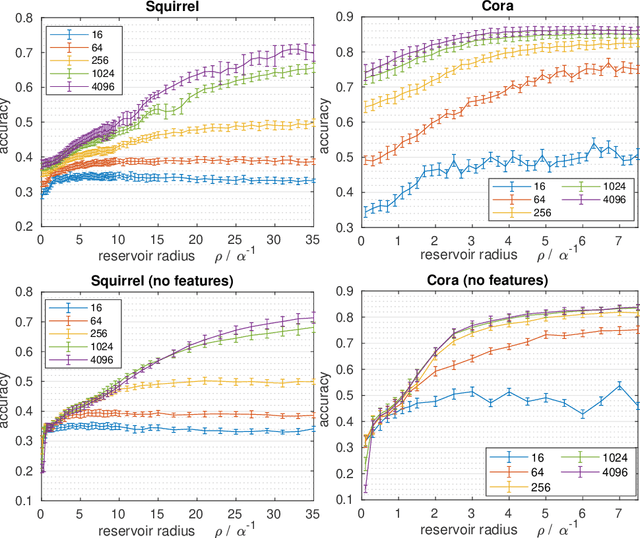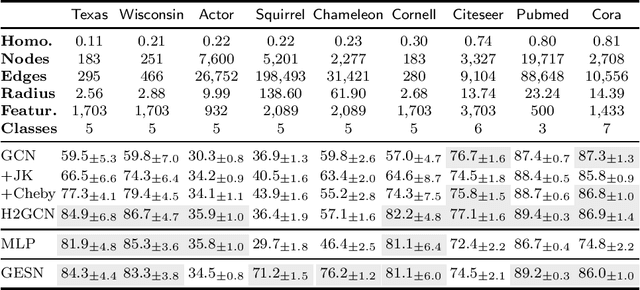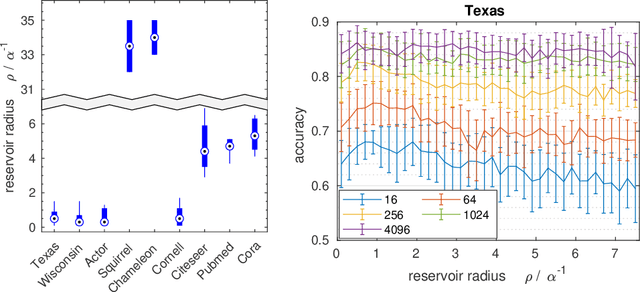Beyond Homophily with Graph Echo State Networks
Paper and Code
Oct 27, 2022


Graph Echo State Networks (GESN) have already demonstrated their efficacy and efficiency in graph classification tasks. However, semi-supervised node classification brought out the problem of over-smoothing in end-to-end trained deep models, which causes a bias towards high homophily graphs. We evaluate for the first time GESN on node classification tasks with different degrees of homophily, analyzing also the impact of the reservoir radius. Our experiments show that reservoir models are able to achieve better or comparable accuracy with respect to fully trained deep models that implement ad hoc variations in the architectural bias, with a gain in terms of efficiency.
* Proceedings of the 30th European Symposium on Artificial Neural
Networks, Computational Intelligence and Machine Learning (ESANN 2022), pp.
491-496 * Accepted for oral presentation at ESANN 2022
 Add to Chrome
Add to Chrome Add to Firefox
Add to Firefox Add to Edge
Add to Edge